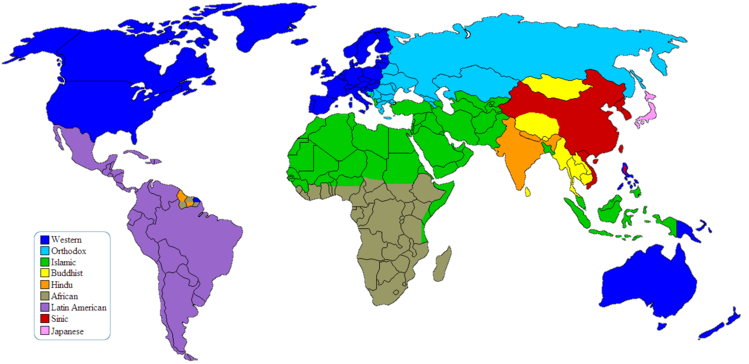Before I updated this thread (seeing only the first couple of postings from yesterday), I would have said:
COME ON GUYS, it's true that Putin is the aggressor in Ukraine and is posing his Russia as the counterpole to Westernness, but does that really justify using such a kind of blatant suprematist and racist discourse? I mean, what other group of humans is it presently acceptable to treat this way? You wouldn't post a thread with the title:
"How could Negroes be seen less as slaving animals?"
(I'm using all these words in quotation marks for my anti-racist argument, so please don't kick me because of the N-word...)
or
"How could the Chinese be seen less as the yellow threat?"
And there's tons of good reason for this. Such statements are full of suprematist stereotypes and shift the blame for one's own stereotypes on the stereotyped.
Why, then, is it acceptable to ask of the Russians what they could have done to escape being Othered?
Then, thankfully, alexmilman came along and started to debunk this, and others have contributed, too, and now the thread is a bit more reflexive.
I don't know if it makes sense to attempt to answer a problematic question, but I'll try...
So we've established that there are two ways to look at this: the development of British, French, German, American etc. stereotypes of Russia and any real differential development on the ground.
As for the development of stereotypes, I think there is some good research by Frithjof Schenk on the matter:
Spatial concepts such as "Europe", the "West" or the "Mediterranean region" not only define political debate, but also the historiographical discourse. Historical research into mental maps investigates the history of these concepts of the regional division of the world, which vary from culture...

ieg-ego.eu
And a newer take on the issue, although I haven't read this one:
https://onlinelibrary.wiley.com/doi/full/10.1111/johs.12390
To sum up Schenk in a nutshell, he says that the Modern Age, and pivotally around the turn from the 18th to the 19th centuries, saw a shift from the long-standing stereotype which arranged a "civilized" (wealthy, cultured) Mediterranean South against a "barbarous" (poor, uncultured) North in Europe - and here already, the Rus, Muscovy etc. were grouped on the bad side, being viewed as a Northern country - into a new mental map which differentiated primarily along a West-East axis, with the West allegedly being enlightened (18th century), then also industrial and liberal (from the 19th century onwards), while the East was stereotyped as superstitious, agricultural/backwards and illiberal. Or, as Schenk puts it, Russia "migrated from the North to the East", but remaiend Othered.
This shift from North vs. South to West vs East has many underlying reasons: from the Islamic conquests which helped foster the Othering of half the Mediterranean over the Reformation, British colonialism and industrialisation etc. Nothing much "Russia" could have done here, but if all of that had gone differently, well, it's doubtful that "Russia" would ever have come into existence in a no Islam world, but if it had, it might have ended up grouped on another bad end of a spectrum.
As for real underlying differences, one that isn't a myth is the lower degree of urbanisation (at least up until Stalin's age) - and also one that sets apart what is presently Ukraine , where urbanisation was higher, from the rest of what used to be the Russian Empire. Now one can project a lot of things onto urbanisation - it could be very relevant, providing for the development of a broader bourgeoisie. It could also be overrated if we look at many Anglo-Saxon settler colonies who were very rural yet view themselves as the epitome of Westernness.
To have a much more urban "Russia", you should probably try to do away with the Mongol invasion. The old Kievan Rus was not called "Gardariki", i.e. land of castles, for nothing by the Norse; it was a town-centered culture, not one focusing on exporting agricultural goods Westwards, as was the case with much of Eastern Europe from the 17th century onwards. Not sure how such a land would develop, if it would end up in modernity as one state or as many, but it might make a difference. Also, I haven't seen any TL here or anywhere else which would have tried to develop this path...
